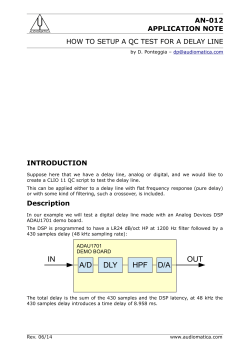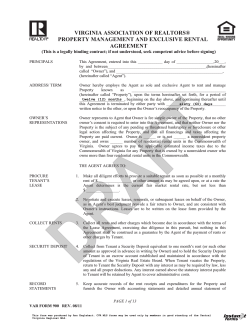
DRUG CALCULATIONS formula helps the accuracy of the calculation.
DRUG CALCULATIONS When calculating how much of a drug is required, working with the formula helps the accuracy of the calculation. Always remember this formula: What you want What you have X Quantity it comes in 1 It’s OK to use a calculator! 1. A patient requires 4 mg of Morphine IVI. Morphine is available as 10mg/ml. How many mls will you draw up? 2. Gentamycin 360 mg is prescribed. Gentamycin is available as 80mg/2ml. How many mls will you draw up? 3. Haloperidol 3 mg IVI is charted. Haloperidol is available as 5mg/ml. How many mls is required? 4. Frusemide 70mg IVI is charted. Stock dose is 20mg/ml. How many ml would you give? __________________________________________________________________________________________________ 1 C:\Documents and Settings\neilh\Local Settings\Temporary Internet Files\Content.Outlook\BA80LT24\Clinical calcs REVIEW SESSION.doc Prepared by: Janet Tweedy and Deb Mason, Nurse Educators, Department of Nursing, Christchurch Hospital, May 2000. Canterbury Health Ltd. Last updated June 2000. METRIC CONVERSIONS Metric weights and measurements involve a step-by-step conversion from one unit to another. With weight we often convert to smaller (and more numerous units) thus: Kg gm mg mcg grams milligrams micrograms Each of these steps involves the heavier unit being multiplied by 1000 to bring up the number of the smaller units for the same weight. kg g mg g mg mcg 1kg x 1000 = 1000g 1g x 1000 = 1000mg 1mg x 1000 = 1000mcg When we multiply by 1000 we move the “decimal point” three places to the right 0.5g == ?? mg 0.5 x 1000 == 500mg 1 place = 5 2 places = 50 3 places = 500 If we are converting from a lighter unit to a heavier unit we move the decimal point three places to the left for each conversion. Another way of putting it is we divide by 1000. mcg mg gm 500mg = mg gm kg ?? gm 1000mcg 1000mg 1000gm 1000 = 1mg 1000 = 1gm 1000 = 1kg 500 1000 = 0.5mg 1 place = 50 2 places = 5 3 places = 0.5 __________________________________________________________________________________________________ 2 C:\Documents and Settings\neilh\Local Settings\Temporary Internet Files\Content.Outlook\BA80LT24\Clinical calcs REVIEW SESSION.doc Prepared by: Janet Tweedy and Deb Mason, Nurse Educators, Department of Nursing, Christchurch Hospital, May 2000. Canterbury Health Ltd. Last updated June 2000. Try these: 5. Atropine 0.6 mg = ?mcg 0.6 x 1000 = 600mcg 6. 0.01gm = ? mg 0.01 7. Gentamycin 360mg = ?gm 360 8. x 1000 = 10 mg 1000 = 0.36gm Digoxin 125mcg = ? mg 125 1000 = 0.125mg If we are moving across two conversions we repeat the process twice. For example from grams to micrograms: 3gm converted to micrograms Step one: = 3 x 1000 = 3000mg Step two: 3000mg x 1000 = 3,000,000mcg 9. Augmentin 1.2gm = ?mcg 1.2 x 1000 = 1200mg 1200 x 1000 = 1,200,000mcg 10. Digoxin 125mcg = ? gm 125 1000 = 0.125mg 0.125 1000 = 0.000125gm Memory Tip: “Heavy to light – three places to the right” __________________________________________________________________________________________________ 3 C:\Documents and Settings\neilh\Local Settings\Temporary Internet Files\Content.Outlook\BA80LT24\Clinical calcs REVIEW SESSION.doc Prepared by: Janet Tweedy and Deb Mason, Nurse Educators, Department of Nursing, Christchurch Hospital, May 2000. Canterbury Health Ltd. Last updated June 2000. Try these: Convert 11. 1.2 mg to mcg 12. 1.3g to mg 13. 500mcg to mg 14. 0.04 mg to mcg 15. 20mcg to mg 16. 600mcg to g 17. 2g to mcg When we are converting volumes the process is the same. Litres 1 Litre ml 1000ml 0.25L 375ml 250ml 0.375L Try these: Convert 18. 450ml to L 19. 64 ml to L 20. 4.3L to ml __________________________________________________________________________________________________ 4 C:\Documents and Settings\neilh\Local Settings\Temporary Internet Files\Content.Outlook\BA80LT24\Clinical calcs REVIEW SESSION.doc Prepared by: Janet Tweedy and Deb Mason, Nurse Educators, Department of Nursing, Christchurch Hospital, May 2000. Canterbury Health Ltd. Last updated June 2000. MG/KG DOSE CONVERSION Often we need to check the dose of a drug or solution that is based on the patient’s weight. We multiply the prescribed mg dose by the kg weight of the patient Prescribed dose - 25mg per kg Patient’s weight - 66kg What is the dose required? 25mg x 66kg = 1650mg = 1.65g 21. Prescribed dose – 50 mg/kg Patient’s weight – 79 kg What is the dose required? 22. The patient is charted 15mg/kg/day. The patient weighs 75kg. a) How much is the total dose per 24 hours? b) How much will the patient receive every 8 hours? ROUNDING OFF the decimal point Rounding up if greater than 5, round up eg 166.66 = 167 Rounding down if less than 5, round down eg 33. 33 = 33 __________________________________________________________________________________________________ 5 C:\Documents and Settings\neilh\Local Settings\Temporary Internet Files\Content.Outlook\BA80LT24\Clinical calcs REVIEW SESSION.doc Prepared by: Janet Tweedy and Deb Mason, Nurse Educators, Department of Nursing, Christchurch Hospital, May 2000. Canterbury Health Ltd. Last updated June 2000. INFUSION FLOW RATES To obtain the hourly rate, divide the volume of fluid to be infused by the number of hours fluid to be infused over. Eg: a 1000ml infused over 12 hours 1000 12 = 83.3ml/hr rounded down to 83ml/hr 23. A 1L bag is to be infused over 6 hours. Calculate how many mls per hour the patient will receive. 24. How many ml/hr would a patient receive if they were to have 500ml of fluid infused over 6 hours? Fluids are infused using a giving set, requiring a “drop per minute” rate. The giving sets are: Standard Metriset = delivers 20 drops per ml. Micro giving set (Buretrol) = delivers 60 drops per ml. Always ensure you use the appropriate calibration in your calculations. __________________________________________________________________________________________________ 6 C:\Documents and Settings\neilh\Local Settings\Temporary Internet Files\Content.Outlook\BA80LT24\Clinical calcs REVIEW SESSION.doc Prepared by: Janet Tweedy and Deb Mason, Nurse Educators, Department of Nursing, Christchurch Hospital, May 2000. Canterbury Health Ltd. Last updated June 2000. DROP PER MINUTE Infusion Calculation Total fluid in mls x giving set calibration Total hours x 60 mins 1 A patient is prescribed Sodium Chloride 1000ml to be infused over an 8-hour period. A standard giving set is being used. Calculate the drops per minute. 1000 X 20 = 8 x 60 25. ?drops per minute Your patient is prescribed a 1000ml infusion of Sodium Chloride 0.9% with 40 mmols of Potassium to be given over 6 hours. Using a buretrol giving set, calculate the drops per minutes he will receive. __________________________________________________________________________________________________ 7 C:\Documents and Settings\neilh\Local Settings\Temporary Internet Files\Content.Outlook\BA80LT24\Clinical calcs REVIEW SESSION.doc Prepared by: Janet Tweedy and Deb Mason, Nurse Educators, Department of Nursing, Christchurch Hospital, May 2000. Canterbury Health Ltd. Last updated June 2000. DRUG CALCULATIONS ANSWERS 1. A patient requires 4 mg of Morphine IVI. Morphine is available as 10mg/ml. How many mls will you draw up? 0.4 mls 2. Gentamicin 360 mg is prescribed. Gentamicin is available as 80mg/2ml. How many mls will you draw up? 9 mls 3. Haloperidol 3 mg IVI is charted. Haloperidol is available as 5mg/ml. How many mls is required? 0.6 mls 4. Frusemide 70mg IVI is charted. Stock dose is 20mg/ml. How many ml would you give? 3.5 mls METRIC CONVERSIONS 5. Atropine 0.6 mg = ?mcg 0.6 x 1000 = 600mcg 6. 0.01gm = ? mg 0.01 7. Gentamicin 360mg = ?gm 360 8. x 1000 = 10 mg 1000 = 0.36gm Digoxin 125mcg = ? mg 125 1000 = 0.125mg __________________________________________________________________________________________________ 8 C:\Documents and Settings\neilh\Local Settings\Temporary Internet Files\Content.Outlook\BA80LT24\Clinical calcs REVIEW SESSION.doc Prepared by: Janet Tweedy and Deb Mason, Nurse Educators, Department of Nursing, Christchurch Hospital, May 2000. Canterbury Health Ltd. Last updated June 2000. 9. Augmentin 1.2gm = ?mcg 1.2 x 1000 = 1200mg 1200 x 1000 = 1,200,000mcg 10. Digoxin 125mcg = ? gm 125 1000 = 0.125mg 0.125 1000 = 0.000125gm 11. 1.2 mg to mcg 1200 mcg 12. 1.3g to mg 1300 mg 13. 500mcg to mg 0.5 mg 14. 0.04 mg to mcg 40 mcg 15. 20mcg to mg 0.02 mg 16. 600mcg to g 0.0006 gm 17. 2g to mcg 2,000,000 mcg 18. 450ml to L 0.45 L 19. 64 ml to L 0.064 L 20. 4.3L to ml 4,300 mls MG/KG DOSE CONVERSION 21. Prescribed dose – 50 mg/kg Patient’s weight – 79 kg What is the dose required? 3950 mg 22. a) The patient is charted 15mg/kg/day. The patient weighs 75kg. How much is the total dose per 24 hours? __________________________________________________________________________________________________ 9 C:\Documents and Settings\neilh\Local Settings\Temporary Internet Files\Content.Outlook\BA80LT24\Clinical calcs REVIEW SESSION.doc Prepared by: Janet Tweedy and Deb Mason, Nurse Educators, Department of Nursing, Christchurch Hospital, May 2000. Canterbury Health Ltd. Last updated June 2000. 1125 mgs b) How much will the patient receive every 8 hours? 375 mgs Rounding off the decimal point Infusion Flow Rates 23. A 1L bag is to be infused over 6 hours. Calculate how many mls per hour the patient will receive. 166.6 mls → 167 mls rounded 24. How many ml/hr would a patient receive if they were to have 500ml of fluid infused over 6 hours? 83.3 mls 25. 83 mls rounded Your patient is prescribed a 1000ml infusion of Sodium Chloride 0.9% with 40 mmols of Potassium to be given over 6 hours. Using a buretrol giving set, calculate the drops per minutes he will receive. 1000 x 60 = 360 1 166.6 drops per minutes rounded Remember all these calculations are based on clinical practice. Safety and accuracy are nursing priorities. References: Dodds, K.G. (1996). Safety in Numbers – Essential Calculations for Nurses. Palmerston North. Dunmore Press Ltd. Christchurch Hospital Department of Nursing Drug Calculation Prompt Card (15/06/00) __________________________________________________________________________________________________ 10 C:\Documents and Settings\neilh\Local Settings\Temporary Internet Files\Content.Outlook\BA80LT24\Clinical calcs REVIEW SESSION.doc Prepared by: Janet Tweedy and Deb Mason, Nurse Educators, Department of Nursing, Christchurch Hospital, May 2000. Canterbury Health Ltd. Last updated June 2000. __________________________________________________________________________________________________ 11 C:\Documents and Settings\neilh\Local Settings\Temporary Internet Files\Content.Outlook\BA80LT24\Clinical calcs REVIEW SESSION.doc Prepared by: Janet Tweedy and Deb Mason, Nurse Educators, Department of Nursing, Christchurch Hospital, May 2000. Canterbury Health Ltd. Last updated June 2000.
© Copyright 2025















